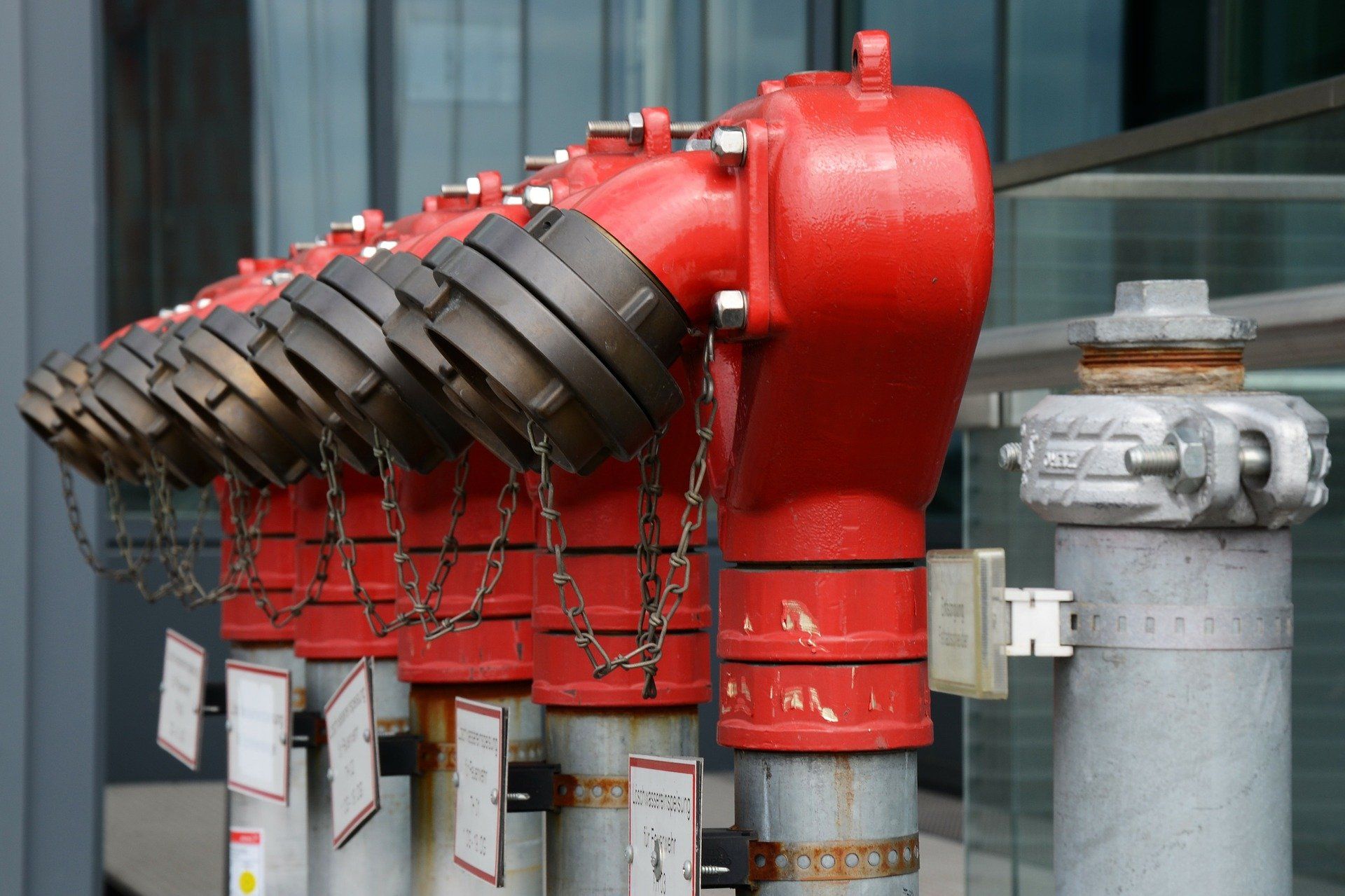Blog Layout
When do I need a fire sprinkler inspection?
CT Fire Protection • Jul 24, 2019
How often?
Fire sprinkler inspections aren't the only thing on your agenda, but they may pop up quite frequently depending on your business. Inspections range from monthly to every five years. They can also land anywhere in between.
Inspection of control valves and gauges in the following systems:
- dry
- wet pipe
- pre-action
- deluge
Inspections of:
- Alarm devices (water flow, valve supervisory)
- Hydraulic nameplate
- fire department connections
Inspections of:
- hangar/ seismic bracing
- pipes and fittings
- signage
- spare sprinklers
At certain inspections there will be physical tests:
- Dry sprinklers: Every 10 years.
- Fast response sprinklers: 20 years of use and every 10 thereafter.
- Main drain sprinklers: 50 years and every 10 thereafter.
What if there's a fire?
At the point of a sprinkler activation, you don't immediately need an inspection. If a sprinkler head is activated due to a fire, you must replace every head in the affected area. For example, if a single sprinkler head is set off because of a paper burning in a trashcan, well that's an expensive situation because now every head in that room must be replaced.
And then?
After a technician comes out to replace the affected sprinkler heads, they then must perform specific tests. Make sure to hold on to your Inspection and Testing Report (ITR) that you'll receive after the test, because a fire inspector may ask for the records upon their annual visit.
The annual authority
The majority of insurance companies require you to have annual fire sprinkler inspections, that's where individual fire protection companies come out. The real authority lies in the hands of the Fire Marshal and their fire inspectors. These inspectors typically come out annually to inspect your fire suppression system. They
hold the authority to tell business owners that they must
get it repaired and tested. They generally give you one month to fix and test the equipment or they'll lock your doors.

By CT Fire Protection
•
03 Jul, 2019
There are a variety of factors that a business must prepare for to protect its property. According to the NFPA, each year more than 3,000 commercial properties are set ablaze. The majority of these fires take place in business offices and generally speaking most of those could have been prevented. You wouldn't think that one broken fire sprinkler could be the sole reason a property burns down, but a working one would be the reason a fire is put out in time. An old beaten down power cable, a distracted employee, or a flickering light. None immediately seem like they would be a hazard, but that's where it leads. It's just a small flame at first, but it spreads. In a room with functional fire safety, the flame is put out in seconds and not too much damage is done. In a room where the sprinkler head is malfunctioning, within 30 seconds that small flame has grown into a disaster. Everything ablaze this loss will cost the company a fortune in repairs. That small risk of a fire is why local and national fire agencies require that all fire safety equipment be functional and up to date with the fire safety code. If they find a problem when they come out for the yearly inspection, they will give you a month to fix the problem or shut you out of business.

By CT Fire Protection
•
01 Jul, 2019
There are three separate stages of repairing broken fire safety equipment; there is the first stage which involves a certified technician to come out and inspect the damaged device(s), the second stage where a technician comes out with the parts to repair the equipment, and the last stage where a certified inspector ensures that the equipment is up to date with the local fire protection laws. All three of these stages can be completed through one company, or they can be contracted out separately. It is more cost-effective and less stressful on the individual business owner to go through one company which holds all proper licenses.
Fort Myers, FL
CT Fire Protection Inc.
11796-C Metro Pkwy.
Fort Myers, FL 33966
Phone:
239-694-2490
Fort Myers, FL 33966
24/7 Emergency Service
Get a Quote
Fort Myers, FL
CT Fire Protection Inc.
11796-C Metro Pkwy.
Fort Myers, FL 33966
Phone:
239-694-2490
Fort Myers, FL 33966
EC13007823
24/7 Emergency Service
Get a Quote
Privacy Policy
| Do Not Share My Information
| Conditions of Use
| Notice and Take Down Policy
| Website Accessibility Policy
© 2024
The content on this website is owned by us and our licensors. Do not copy any content (including images) without our consent.


